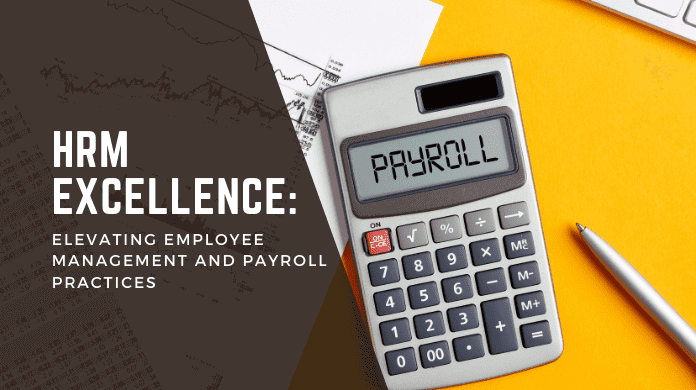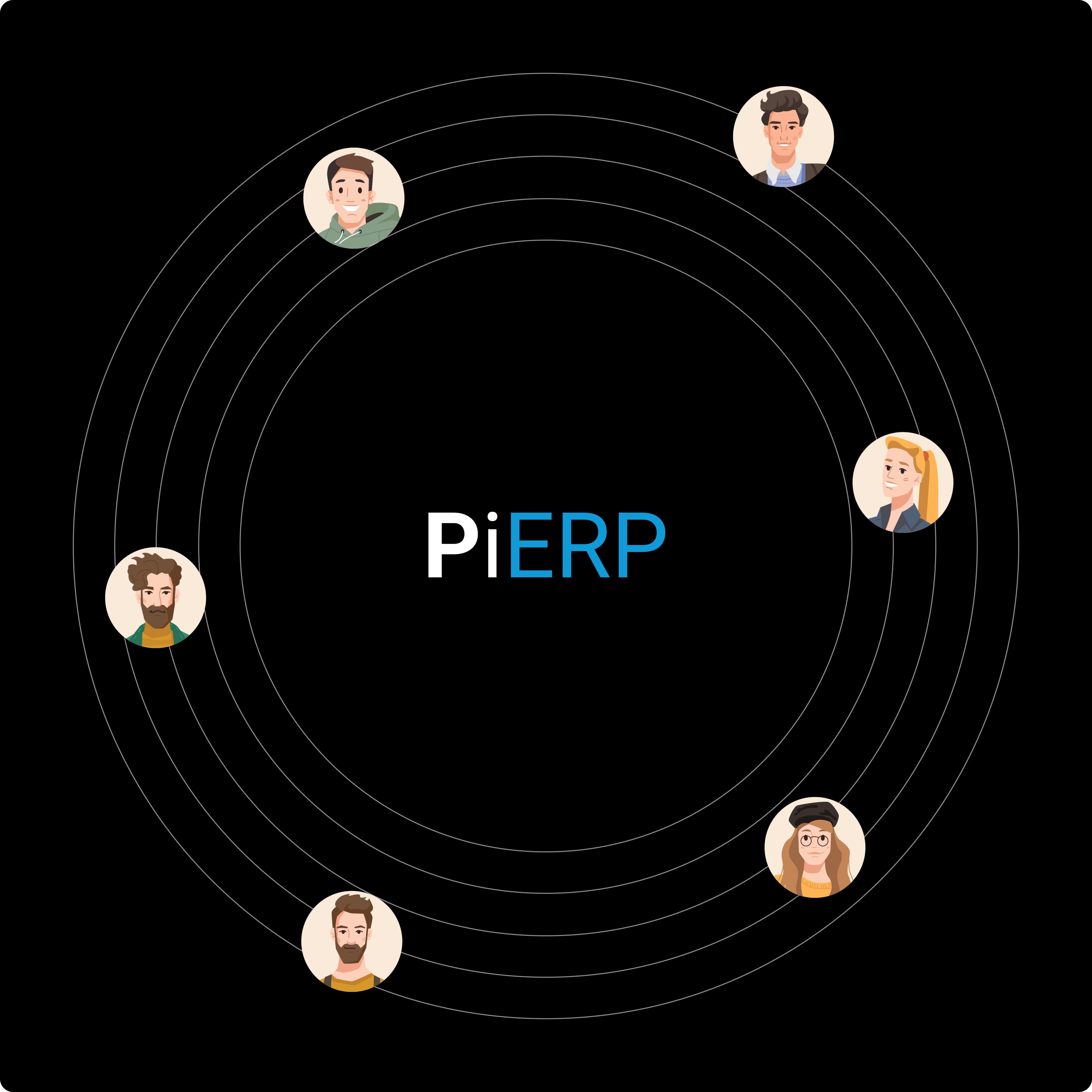Human Resource Management (HRM) excellence stands as a cornerstone for organizational success and longevity, in today's competitive world. "HRM Excellence: Elevating Employee Management and Payroll Practices" explores the pivotal role of effective HRM strategies in fostering employee engagement, optimizing payroll processes, and ultimately driving organizational growth.
This article delves into the multifaceted components of HRM excellence, from recruiting top talent to implementing robust performance management systems and crafting competitive compensation strategies. By understanding the significance of nurturing a skilled and motivated workforce, businesses can harness the power of HRM excellence to enhance productivity, foster innovation, and cultivate a thriving organizational culture.
Join us as we uncover the transformative potential of HRM excellence in propelling businesses toward sustainable success and competitive advantage.
Key Components of HRM Excellence
- Recruitment and Hiring Processes: Effective recruitment and hiring processes are critical for attracting top talent to the organization. This involves strategic sourcing, candidate evaluation, and onboarding procedures designed to identify and onboard individuals who fit the organization's culture and contribute to its success.
- Employee Training and Development: Investing in employee training and development is essential for enhancing skills, knowledge, and performance levels. HRM excellence involves the design and implementation of comprehensive training programs tailored to the needs of employees at various career stages.
- Performance Management Systems: A robust performance management system provides employees with clear expectations, regular feedback, and growth opportunities. HRM excellence entails the establishment of performance goals, performance evaluations, and performance improvement plans to maximize individual and organizational performance.
- Payroll Practices and Compensation Strategies: Fair and competitive compensation is crucial for attracting, motivating, and retaining employees. HRM excellence involves the development of equitable compensation structures, salary benchmarking, and reward systems that recognize and reward employee contributions.
- Employee Engagement and Retention Initiatives: Engaged and satisfied employees are more likely to remain with the organization and contribute to its success. HRM excellence includes the implementation of initiatives such as employee recognition programs, career development opportunities, and work-life balance initiatives to enhance employee engagement and retention.
How HRM Elevates Employee Management?
HRM (Human Resource Management) plays a pivotal role in elevating employee management by implementing strategic practices aimed at maximizing the potential of the workforce. Firstly, HRM facilitates the recruitment and selection process, ensuring that qualified candidates who align with the organization's values and goals are hired. Through effective onboarding procedures, HRM helps new hires integrate seamlessly into the company culture, fostering a sense of belonging and engagement from the outset.
Additionally, HRM oversees training and development initiatives, providing employees with opportunities to enhance their skills and advance their careers. Moreover, HRM is instrumental in establishing clear performance management systems, setting objectives, providing feedback, and recognizing achievements, which fosters a culture of accountability and high performance.
Furthermore, HRM is crucial in managing employee relations, addressing grievances, and promoting a positive work environment conducive to collaboration and innovation. Overall, by implementing strategic HRM practices, organizations can effectively manage their employees, unlock their full potential, and drive organizational success.
How HRM Elevates Payroll Practices?
HRM (Human Resource Management) significantly elevates payroll practices through various strategic initiatives aimed at ensuring accuracy, efficiency, and fairness in compensation management. Firstly, HRM streamlines payroll processes by implementing advanced payroll software and systems, automating calculations, deductions, and tax withholdings, thereby reducing manual errors and saving time.
Additionally, HRM ensures compliance with legal regulations and industry standards regarding payroll, such as minimum wage requirements and overtime regulations, mitigating the risk of non-compliance and potential penalties. Furthermore, HRM oversees the development of transparent and equitable compensation structures, conducting regular market surveys and benchmarking to ensure competitive salaries and benefits packages.
Moreover, HRM facilitates communication and transparency regarding payroll matters, providing employees with access to their pay stubs, tax documents, and benefits information through self-service portals. By prioritizing accuracy, compliance, and transparency in payroll practices, HRM enhances trust and satisfaction among employees, fostering a positive workplace culture and contributing to overall organizational success.
Challenges in Achieving HRM Excellence
Achieving HRM (Human Resource Management) excellence is not without its challenges, as organizations navigate various complexities and obstacles inherent in managing human capital effectively. One significant challenge is the constraint of limited budget and resources. Many organizations struggle to allocate sufficient funds and resources towards HRM initiatives, such as training programs, technology upgrades, and employee benefits, due to competing priorities and financial constraints. This limitation can impede the implementation of comprehensive HRM strategies and hinder the organization's ability to attract, retain, and develop top talent.
Another challenge lies in keeping pace with rapid technological changes. The evolving landscape of HRM software, tools, and platforms requires continuous adaptation and investment to leverage emerging technologies effectively. Organizations must stay abreast of advancements in HR technology to streamline processes, enhance data analytics capabilities, and improve decision-making. However, the rapid pace of technological innovation presents challenges in terms of resource allocation, training, and integration with existing systems.
Compliance with employment laws and regulations poses another significant challenge for organizations striving for HRM excellence. HR professionals must navigate a complex web of federal, state, and local regulations governing various aspects of employment, including wage and hour laws, anti-discrimination statutes, and workplace safety regulations. Ensuring compliance requires ongoing monitoring, interpretation, and implementation of relevant laws and regulations, which can be resource-intensive and time-consuming.
Addressing diversity and inclusion issues presents yet another challenge in achieving HRM excellence. Promoting diversity and inclusion in the workplace requires proactive efforts to overcome bias, discrimination, and systemic barriers. HR professionals must implement inclusive hiring practices, provide diversity training, and foster an inclusive culture where all employees feel valued and respected. However, achieving genuine diversity and inclusion requires ongoing commitment and cultural transformation, which can be challenging in organizations with entrenched biases or limited awareness of diversity issues.
Final Words
In conclusion, HRM excellence is essential for organizations striving to effectively manage their human capital and achieve sustainable growth and success. By investing in recruitment, training, performance management, compensation, and employee engagement initiatives, organizations can create a positive work environment conducive to employee satisfaction, productivity, and retention.






